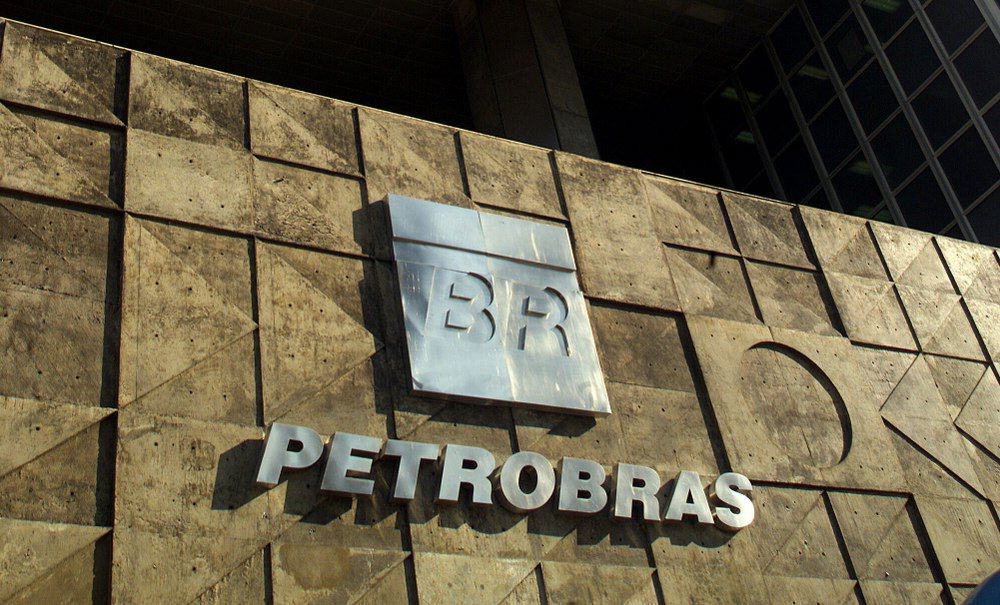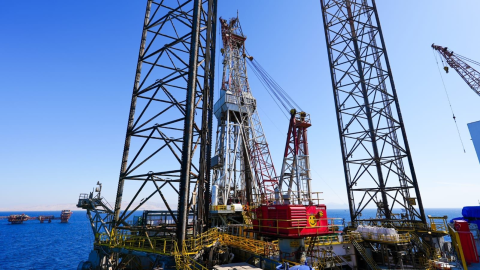Petroleo Brasileiro SA’s new chief executive officer is close to overcoming his first major hurdle: getting auditors to approve financial results.
His next big task will be figuring out how to generate the cash needed to pay the oil industry’s largest debt load, while simultaneously developing massive offshore fields.
Petrobras, embroiled in a corruption scandal that has all but locked it out of credit markets, rallied 56 percent in the month through Thursday, making it Brazil’s best stock, on the expectation the state-controlled oil company will release its long-delayed earnings report next week. Rio de Janeiro-based Petrobras said in a statement this week it will present audited results to the board for approval on April 22. Shares fell 3 percent Thursday to close at 12.93 reais in Sao Paulo.
Once approved by auditor PricewaterhouseCoopers LLP and the board, it will validate Brazilian President Dilma Rousseff’s decision to appoint state bankers — CEO Aldemir Bendine and Chief Financial Officer Ivan Monteiro — to run an oil company. Bendine took over the Petrobras helm after decades at state-controlled Banco do Brasil SA.
“In the short term, a major problem will be resolved,” said Adriano Pires, the head of Rio de Janeiro-based consultancy CBIE. “The government is selling this idea that after the results are published that all is resolved, but we know better. The fundamentals are still bad.”
Petrobras is slashing investments and reviewing production targets in the face of lower crude prices, a weaker currency that’s boosting debt costs and a supply chain that’s in disarray after the company halted new contracts with more than 20 contractors cited in the corruption investigation.
It’s that perfect storm, coupled with the delay in earnings, that has prevented Petrobras from tapping bond markets that helped it finance about $40 billion in capital expenditures in recent years. Payments on some of the company’s $135 billion in debt could be accelerated if audited annual earnings are not released by the end of May.
Challenges ahead mean the recent stock rally may not be sustained, said Bernardo Wjuniski, a Brazil oil industry research analyst at Medley Global Advisers.
“These other issues are out there and won’t be solved anytime soon,” he said by telephone from Sao Paulo. “The tough part is to deliver all the other things — to find enough people to buy the assets being sold quickly, to maintain some production and revenue while cutting capex and spending.”
The cash strain at Petrobras, whose refining division posted more than $40 billion in operating losses from 2011 through mid-2014 because it was subsidizing gasoline and diesel imports, may force it to sell new shares to the government to help finance operations, he said. That would punish minority shareholders, who would see their holdings diluted, he said.
“Everyone kind of agrees they will need some sort of recapitalization — the government will have to step in with some money,” Wjuniski said, adding that planned asset sales will reduce the need for a cash injection.
Petrobras is considering selling stakes in so-called pre-salt fields as part of its $13.7 billion divestment plan, six people with knowledge of the matter said last week. Agencia Estado reported April 13 that Petrobras also wants to sell a stake in petrochemicals maker Braskem SA. The list of assets for sale is “dynamic” and will depend on market conditions, Petrobras said in a statement April 2.
Petrobras declined to comment on its plans to reduce leverage, improve cash flow or the possibility of a share sale. It said in a statement Thursday that pre-salt fields weren’t included in a divestment plan approved on March 2.
The company isn’t expected to return to bond markets this year because it needs to reduce debt levels, Morgan Stanley analysts including Paolo Batori and Guilherme Paiva said in a March 30 research report. Petrobras may sell shares or convert debt with state development bank BNDES into shares to reduce leverage, they said.
Petrobras’s ratio of debt to 12-month trailing earnings before interest, taxes depreciation and amortization is 5.89, compared with 1.81 among integrated oil and gas companies, according to data compiled by Bloomberg.
“The leverage level should be the next focus,” Karina Freitas, an analyst at brokerage Concordia SA, said by phone from Sao Paulo. “The publication of results is the starting point to resume other discussions.”
Source: Bloomberg












